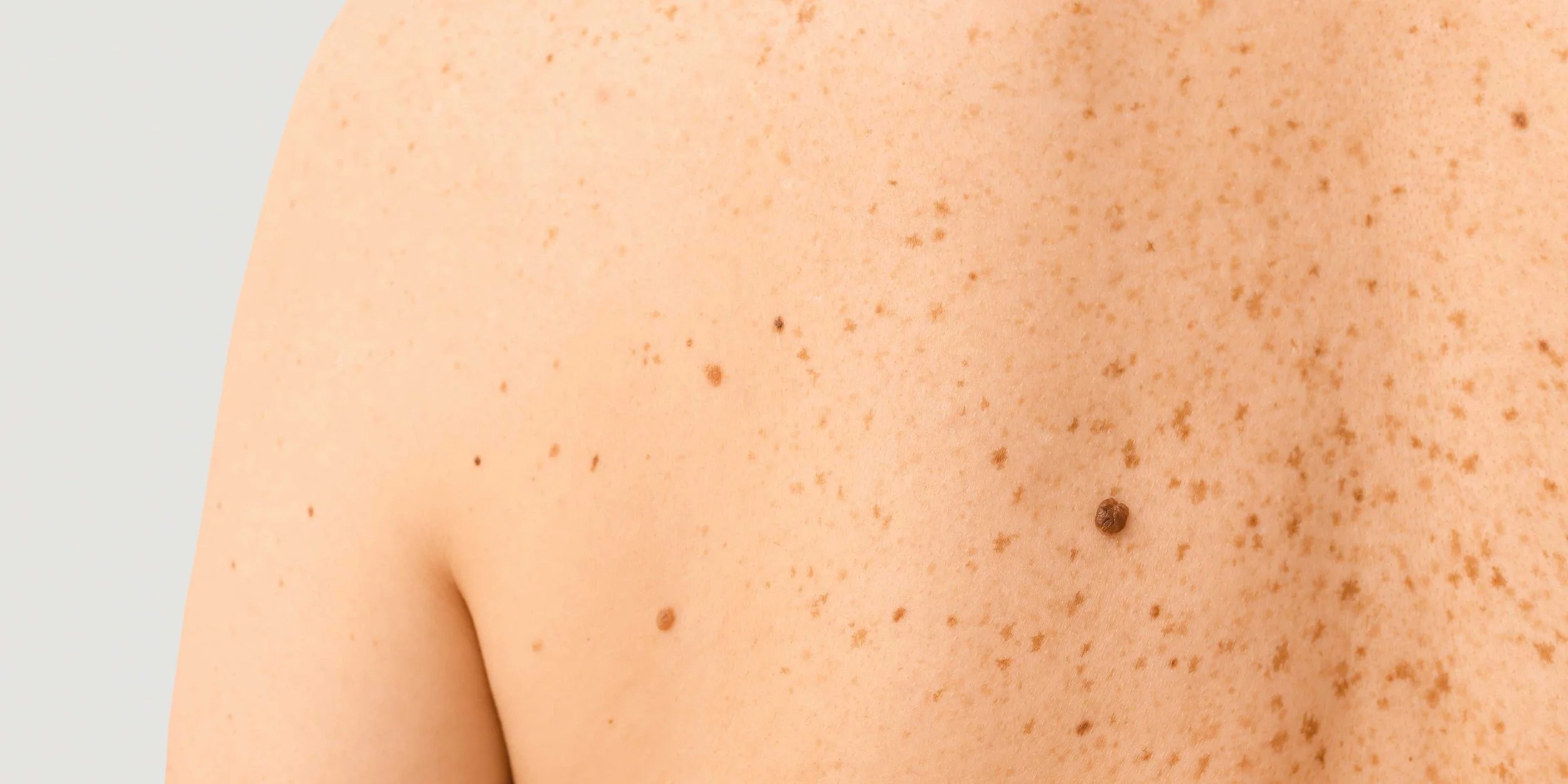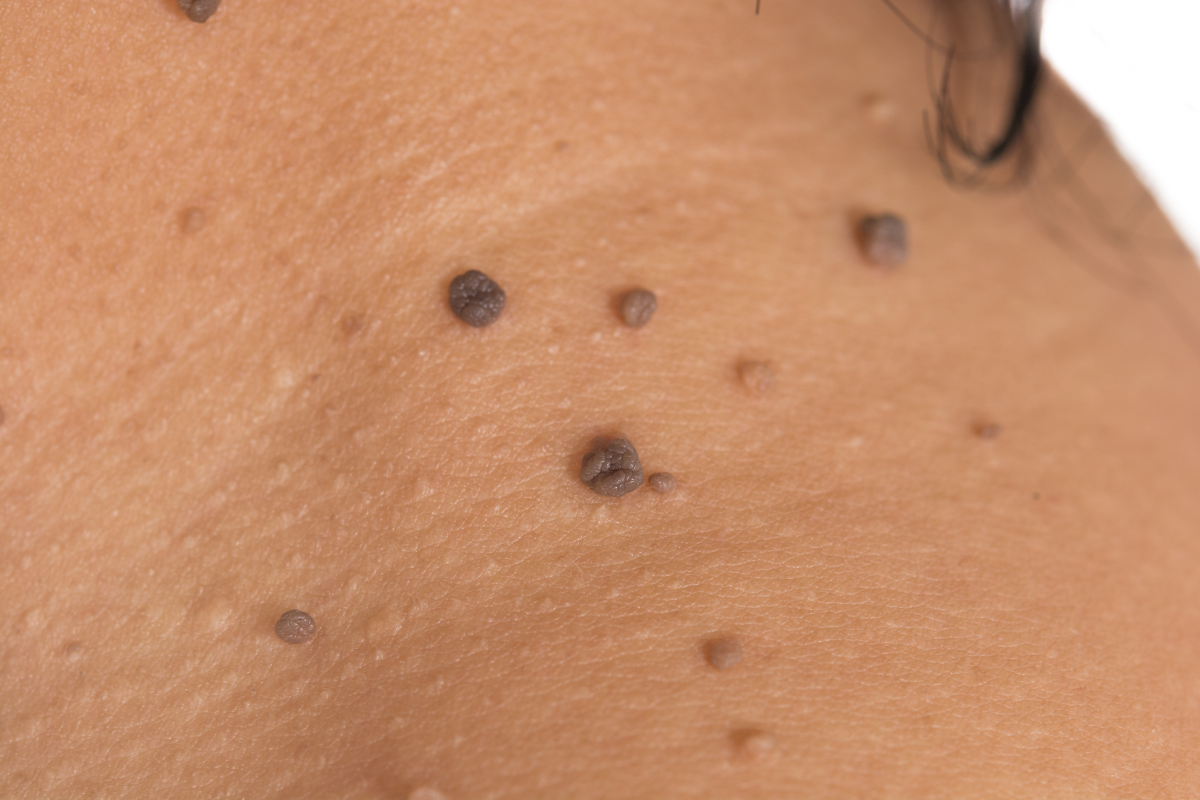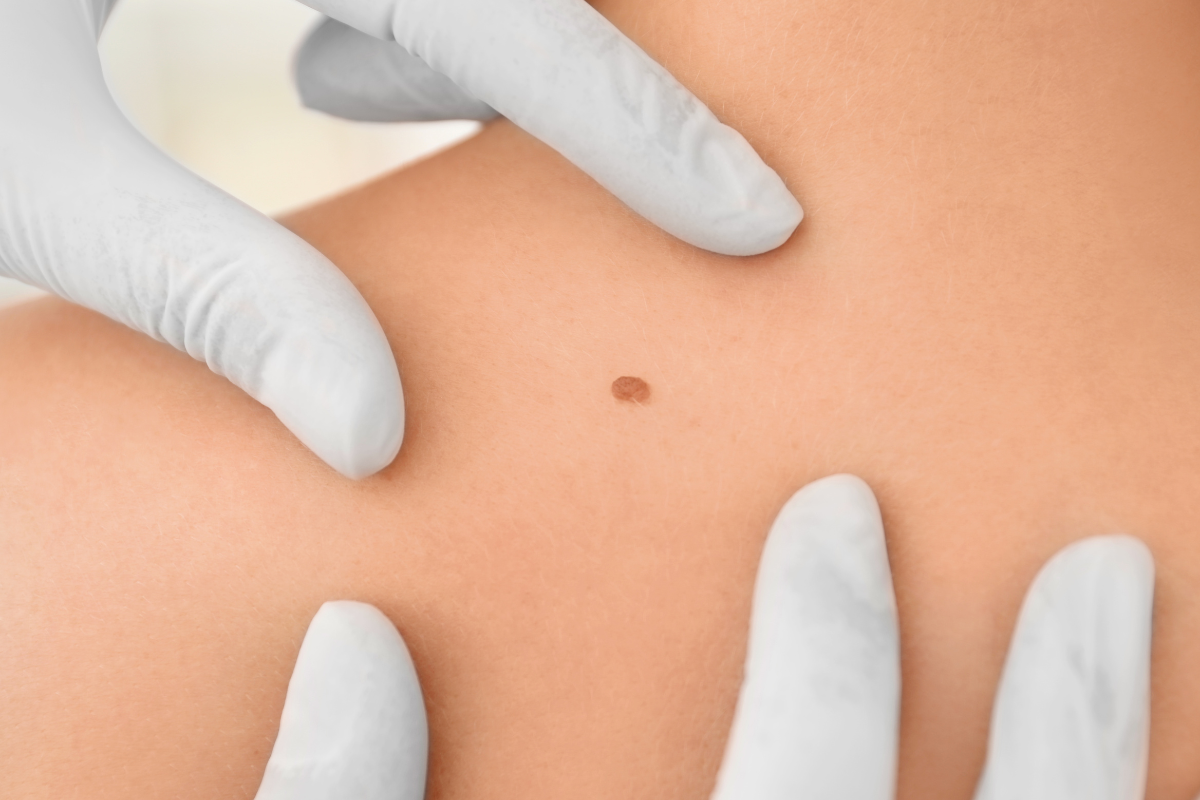
Skin cancer screening & diagnosis in Berkshire, London and Surrey.
Full Body Skin Cancer Screening and Diagnosis in Berkshire
Early detection. Consultant-led care. Trusted across Berkshire, London, and Surrey.
At Apex Skin Clinic, we understand how worrying a changing mole or unusual patch of skin can be. That is why we offer clear answers and prompt support.
Based at Berkshire Grove Hospital in Maidenhead, we provide private, consultant-led care for all types of skin cancer. This includes melanoma, basal cell carcinoma (BCC), squamous cell carcinoma (SCC), and pre-cancerous conditions such as Bowen’s disease and actinic keratosis.
You do not need a GP referral. Our team of consultant dermatologists, plastic surgeons, and skin cancer nurse specialists see patients from Maidenhead, London, Surrey, and nearby areas including Windsor, Eton, Ascot and Marlow.
Our Diagnostic Services
-

Digital Mole Mapping
Advanced digital mole tracking using digital photography and dermoscopy for early melanoma detection and peace of mind.
-

Full Body Skin Cancer check
A Full Body Skin Check is a comprehensive, head-to-toe consultant-led skin examination designed to detect early signs of
skin cancer. -

Single Mole Review
For patients with a skin growth that has changed colour, shape, or size.
We provide rapid assessment and high-quality imaging. -

High-Risk Patient Monitoring
We offer personalised monitoring plans for individuals who are more likely to develop skin cancer due to specific risk factors.
-

Digital Dermoscopy
Included in all our assessments, this technology is the gold standard for detecting common skin cancer types.
What We Treat
We diagnose and treat the full range of skin cancers and pre-cancerous conditions. These include melanoma, which is the most serious form of skin cancer, basal cell carcinoma, which is the most common and usually slow-growing, and squamous cell carcinoma, which can spread if left untreated. We also see early-stage conditions such as Bowen’s disease and actinic keratosis, which are considered pre-cancerous and may progress into more serious types of skin cancer if not managed early.
-
Melanoma can present in different ways depending on the subtype. It may appear as a dark mole or patch that changes over time, often becoming larger, uneven or itchy. Other signs include sores that do not heal, flaky or rough patches, or red, crusted bumps. These changes often occur on sun-exposed areas like the face, scalp, arms or back - but can also appear in less obvious locations such as under the nails, between the toes, or on the soles of the feet. Our consultants assess all atypical or changing moles through detailed clinical examination and, where needed, digital dermoscopy and biopsy.
-
BCC is the most common form of skin cancer in the UK. It often appears as a pearly bump, red patch or scab that does not heal. It tends to grow slowly but can damage surrounding tissue if left untreated. We offer diagnosis and treatment for all subtypes of BCC, using surgical and non-surgical methods, and prioritise cosmetic preservation for lesions on visible areas such as the nose, eyelids or lips.
-
SCCs may present as thickened, crusted or ulcerated patches of skin - particularly on the face, scalp or hands. These lesions carry a risk of spreading to lymph nodes and require timely intervention. Our clinic offers excision with histological assessment and, where indicated, sentinel lymph node biopsy or lymph node clearance.
-
Both Bowen’s disease and actinic keratosis are considered precursors to squamous cell carcinoma. Bowen’s disease usually presents as a slowly growing, red and scaly plaque. Actinic keratoses are rough, sun-damaged patches often seen on the scalp, face and forearms. We offer cryotherapy, topical therapies, and photodynamic therapy (PDT) as part of our early intervention strategy.
-
Keratoacanthomas are dome-shaped growths that may resemble squamous cell carcinoma but often behave less aggressively. Due to their rapid growth and similarity to malignant lesions, they are usually removed for definitive diagnosis. Our team also evaluates similar-looking lesions to ensure appropriate management - whether reassurance, monitoring or removal is needed.
-
Many patients come to us with a single mole that has changed in size, shape or colour. Others notice a non-healing sore, bleeding patch, or new skin lump. Our consultants are highly experienced in distinguishing between benign lesions and skin cancers, using dermoscopy, digital imaging and biopsy where needed.
Each lesion we see is carefully evaluated by our consultants to determine whether it should be removed, monitored, or left alone with reassurance. Our approach combines early and accurate diagnosis, expert-led treatment, and ongoing care tailored to each individual. From your first visit to long-term follow-up, you can expect clarity, compassion and clinical excellence at every step.
Early Diagnosis Matters
Skin cancer is among the most common skin cancer types in the UK. It is highly treatable when identified early, yet many individuals delay seeking advice. At Apex Skin Clinic, we offer private skin cancer checks for individuals actively searching for a private skin cancer check near me, particularly those concerned about an existing mole, skin growth, lesion, or sun-exposed skin.
Our consultant-led skin cancer screening service is based in Maidenhead, ideally located for patients in London, Windsor, Eton, and the wider Berkshire and Surrey regions. We welcome those looking for a convenient skin cancer screening near me or in need of a reliable private skin cancer check near me.
You may have noticed a suspicious change in your skin or be unsure about the difference between a wart vs skin cancer or freckle vs skin cancer. Our multidisciplinary team offers expert diagnosis, clarity, and peace of mind.
Our Approach to Treatment
Skin cancer treatment is always tailored to the individual. For many patients, surgical excision is the first and most effective step. Our plastic and reconstructive surgeons have extensive experience in performing skin cancer removals, especially in sensitive or high-visibility areas such as the face. Each excision is planned with both clinical and cosmetic outcomes in mind, using techniques that help to minimise scarring and protect surrounding healthy skin.
In cases of melanoma, further tests such as sentinel lymph node biopsy may be recommended. This test identifies whether the melanoma has spread to nearby lymph nodes and is an important staging tool. If melanoma cells are found in the sentinel lymph nodes, we may then consider lymph node clearance. This allows us to better understand the extent of the cancer and plan the appropriate
course of care.
-
For non-invasive or early-stage cancers, we may recommend non-surgical options. These include photodynamic therapy, which involves applying a special cream to the skin and activating it with light to destroy cancerous cells. Cryotherapy is another option, which uses extreme cold to freeze and remove the affected tissue. Topical treatments such as imiquimod or 5-fluorouracil may be used for selected lesions, particularly when surgery is not ideal. In certain cases, we may also advise on the use of Mohs surgery, a precise method of skin cancer removal performed in stages and typically used for specific BCCs in high-risk locations.
We also guide patients through every stage of skin cancer melanoma treatment - from biopsy to follow-up imaging. Whether your care involves surgery or non-surgical skin cancer treatments, we ensure you are informed, supported and confident in your care path.
What to Expect at Your Appointment
Your assessment will be led by one of our consultant dermatologists, consultant plastic surgeons, or advanced nurse specialists trained in dermoscopy. A full top-to-toe skin examination will be conducted. Digital dermoscopic imaging may be used to assess the internal structure of any moles or lesions.
This is particularly useful for identifying early signs of melanoma skin cancer, squamous cell skin cancer, and basal cell carcinoma. The procedure is non-invasive and highly accurate, especially in sun-exposed areas of the body such as the face, back, chest, and shoulders.
-
Have noticed a new or existing mole that has changed in appearance
Are concerned about an unusual skin growth or irregular pigmentation
Seek clarity after researching skin cancer moles images or skin cancers pictures
Wish to confirm whether a mark is benign or requires monitoring
Frequently Asked Questions
-
You may wish to schedule an appointment if you:
Notice a brown or black mole or lesion that is changing
Are unsure about a wart vs skin cancer or freckle vs skin cancer
Have reviewed skin cancer moles images, skin cancers pictures, or pictures of skin cancer and are concerned
Have previously had basal cell or squamous cell skin cancer
Are looking for a thorough skin cancer check near me
Want professional assessment of a skin condition that hasn’t resolved
-
Basal cell carcinoma grows slowly and rarely spreads. It tends to cause local damage if left untreated.
Squamous cell carcinoma can grow more quickly and may spread to other parts of the body if not treated early.
-
Not all melanomas spread, but some can if they are not caught in time. Early diagnosis allows for treatment before melanoma cells move to other parts of the skin or lymph nodes. When found early, treatment is usually straightforward and highly effective.
We also consult from selected locations across London and Surrey, ensuring accessibility for patients across the region. Whether seeking a mole check, full-body skin cancer screening, or ongoing follow-up, patients benefit from specialist support across every layer of the skin. Our diagnostic capabilities include dermoscopy, histopathology and assessments for skin changes that may spread to other parts of the body.
-
After your skin cancer has been removed, we will support your recovery with advice about wound healing and scar care. We also provide regular follow-ups and skin checks if you are at higher risk of recurrence.
-
Yes. Many patients choose to return annually for a full-body skin check or mole mapping. This is especially important if you have had previous skin cancers or multiple moles. Regular monitoring helps us detect any new or changing lesions early.
-
We consult from our primary clinic in Maidenhead and also offer appointments at selected sites in London. If you have previously been seen in Harley Street, we can continue your care seamlessly at Apex Skin Clinic.
-
Consultant-led diagnosis by expert dermatologists and plastic surgeons
Access to state-of-the-art mole mapping and digital dermoscopy
Personalised plans for high-risk patients
Trusted across Maidenhead, Windsor, Eton, Surrey, and London
Immediate access to minor surgery, including biopsy and excision when needed
-
At Apex, treatment is only part of the journey. We provide full aftercare and support following your procedure. This includes detailed guidance on wound care, dressing changes, and scar management. Our team may recommend silicone-based treatments, gentle massage techniques, or follow-up appointments to ensure that healing is progressing as expected.
Long-term monitoring is essential, particularly for patients with a history of melanoma or other aggressive skin cancers. We offer routine follow-up appointments, digital mole mapping, and full-body skin checks to track any new or evolving lesions. For patients at higher risk, we create individual surveillance schedules designed to detect recurrence or new cancers as early as possible.
Our skin cancer nurses remain available throughout your care. Whether you have questions about treatment, anxiety about a recent change in your skin, or concerns about your recovery, we are here to offer support and reassurance.
-
Knowing when to act can make all the difference. If you notice a mole that has changed in colour, shape, or size, or if you have a sore that is not healing, it is important to get checked. Other signs include newly formed patches of rough, scaly skin, bleeding growths, or spots that itch, crust, or become inflamed.
We encourage patients not to wait. Many skin cancers, including melanoma, can be treated successfully when caught early. You do not need a referral to see one of our consultants. Same-week appointments are often available, and we are happy to provide second opinions or ongoing care if you have already seen another provider.
If your GP or previous clinic has advised you to refer to a specialist, we can take over your care quickly and provide continuity without delays or long waiting lists.
Book Your Consultation
If you are worried about a mole, skin lesion, or changing area of skin, our team is here to help. We offer clear diagnosis, expert treatment, and continued care in a calm, professional environment. Whether you are seeking a skin cancer diagnosis and treatment plan or simply want reassurance, we will guide you with expertise and compassion.
